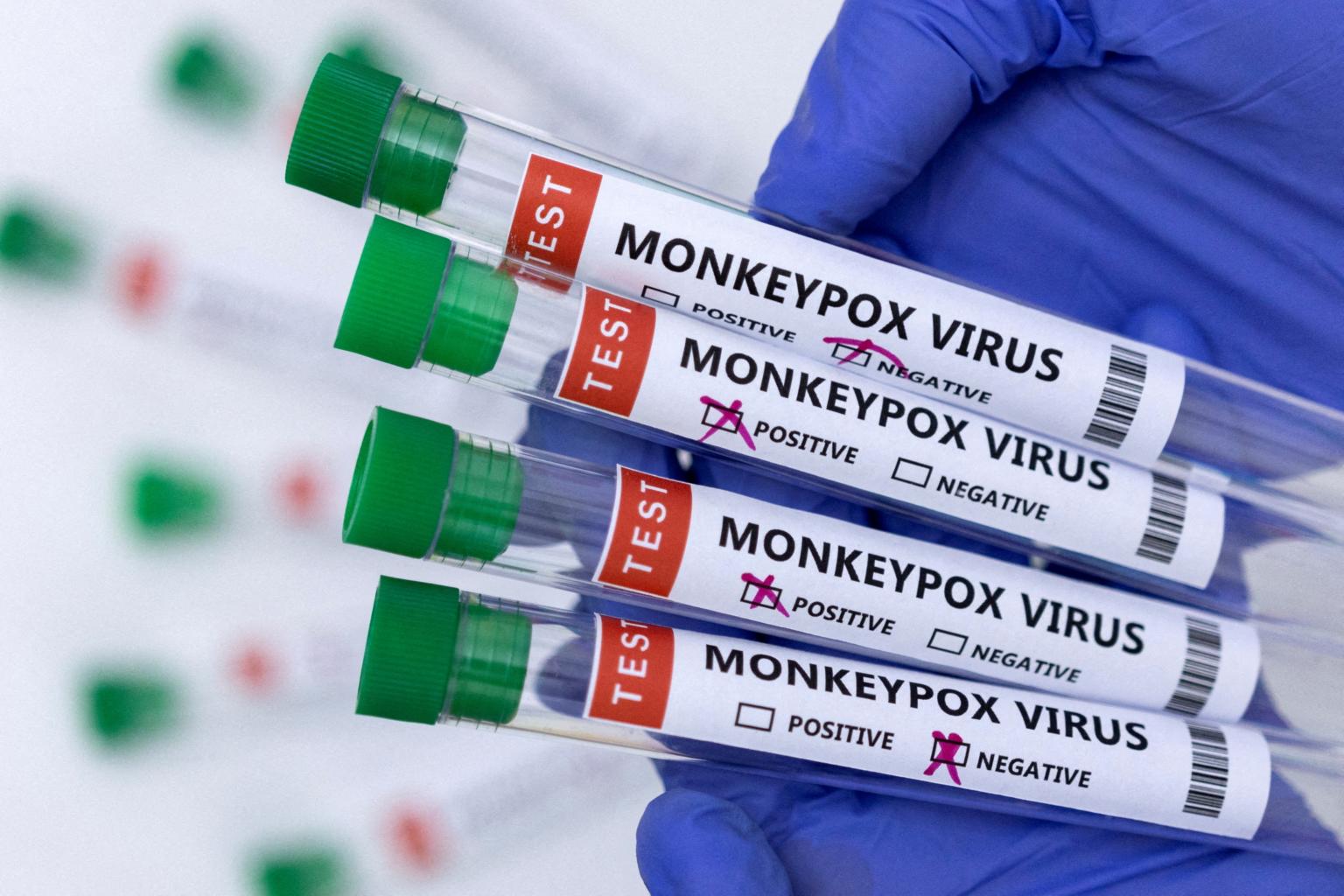WHO to decide if monkeypox outbreak is global health emergency
Sign up now: Get ST's newsletters delivered to your inbox

More than 3,200 confirmed cases of monkeypox and one death have been reported to the WHO.
PHOTO: REUTERS
GENEVA (AFP, REUTERS) - A World Health Organisation (WHO) committee of experts met on Thursday (June 23) to decide whether the monkeypox outbreak constitutes a global health emergency.
The outcome of the in-private meeting will be issued on Friday at the earliest, the WHO said.
A surge of monkeypox cases has been detected since May outside of the West and Central African countries where the disease has long been endemic. Most of the new cases have been in Western Europe.
More than 3,200 confirmed cases and one death have now been reported to the WHO from 48 countries in total this year, WHO chief Tedros Adhanom Ghebreyesus told the meeting.
Dr Tedros announced on June 14 that he would convene an emergency committee to assess whether the outbreak constitutes a public health emergency of international concern (PHEIC) - the highest alarm that the United Nations health agency can sound.
Besides providing a PHEIC assessment, the committee members were set to give the WHO and its member states advice on how to better prevent the spread of the disease and manage their response.
Dr Tedros told Thursday's meeting that all countries needed to strengthen their capacities to prevent onward transmission of monkeypox, using surveillance, contact-tracing and isolating infected patients.
"The outbreak in newly-affected countries continues to be primarily among men who have sex with men, and who have reported recent sex with new or multiple partners," he said, via video-link from the Commonwealth summit in the Rwandan capital Kigali.
"Person-to-person transmission is ongoing and is likely underestimated."
He said that in addition to the 3,200-plus confirmed cases, almost 1,500 suspected cases of monkeypox and around 70 suspected deaths have been reported in central Africa this year.
The emergency committee will provide Dr Tedros with a PHEIC recommendation, and an assessment of the risk to human health, the risk of international spread and the risk of interference with international traffic.
Dr Tedros will then make the final determination on whether a PHEIC should be declared, based on their advice.
The pending decision has stirred criticism from leading African scientists who say that monkeypox has been a crisis in their region for years.
"When a disease affects developing countries, it is not an emergency. It only becomes an emergency when developed countries are affected," said Professor Emmanuel Nakoune, acting director of the Institut Pasteur in Bangui, Central African Republic, who is running a trial of a monkeypox treatment.
However, Prof Nakoune said that if the WHO declares an emergency, it would still be an important step.
"If there is the political will to share equitably the means of response between developed and developing countries...each country will be able to benefit," he said.
There have been six PHEIC declarations since 2009, the last being for Covid-19 in 2020 - though the sluggish global response to the alarm bell still rankles at the WHO's Geneva headquarters.
A PHEIC was declared after a third emergency committee meeting on Jan 30, 2020. But it was only after March 11, when Dr Tedros described the rapidly-worsening situation as a pandemic, that many countries seemed to wake up to the danger.
On the number of monkeypox cases, "it is a little difficult to see how much of this is the tip of the iceberg", said Dr Philippe Duneton, head of the Unitaid agency, which invests in ways to prevent, diagnose and treat diseases.
"There are no easy-to-use tests to detect it. This is essentially done at the clinical level. So an important issue is to have testing which is done earlier and which makes it possible to detect cases, particularly among case contacts," he told AFP.
The normal initial symptoms of monkeypox include a high fever, swollen lymph nodes and a blistery chickenpox-like rash.
Most experts agree that monkeypox technically meets the criteria for the WHO definition of an emergency. It is a sudden and unusual event spreading internationally, and requires cross-country cooperation. But the WHO is in a precarious position after Covid-19, according to Dr Clare Wenham, a global health assistant professor at the London School of Economics.
If the WHO declares an emergency and countries do not act, it could undermine the agency's role in controlling global disease, she said.
"They're damned if they do, and damned if they don't," she added.


